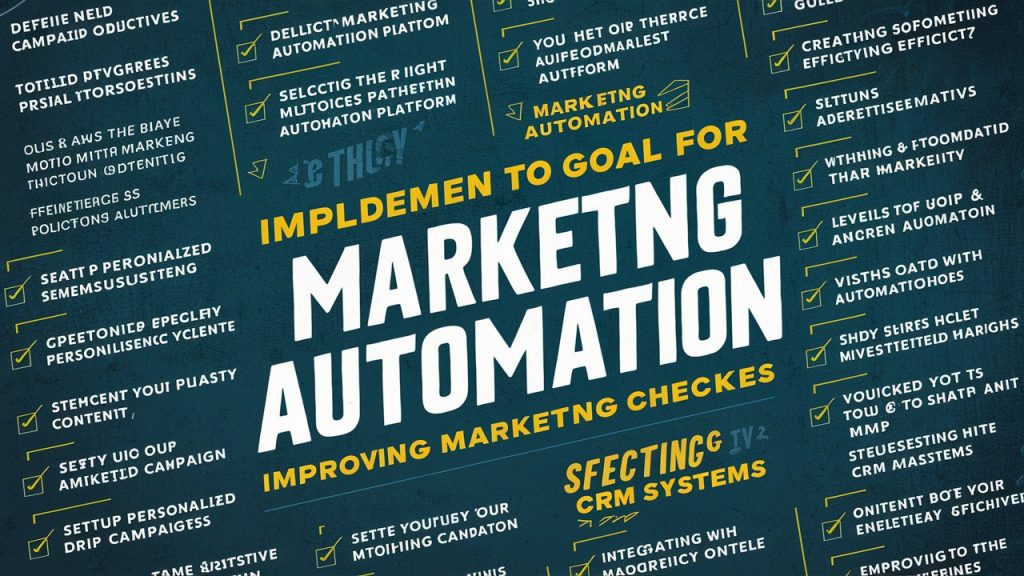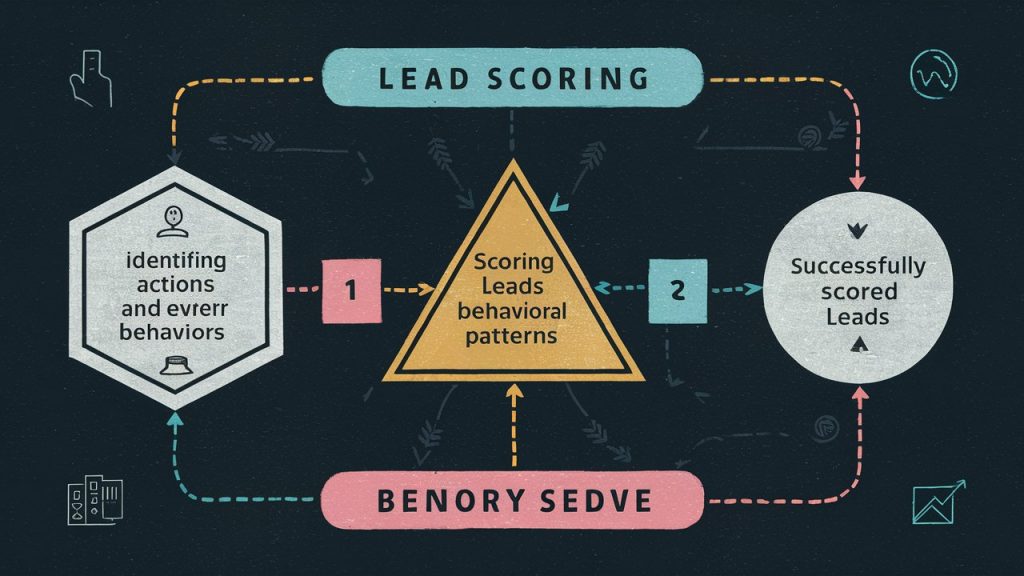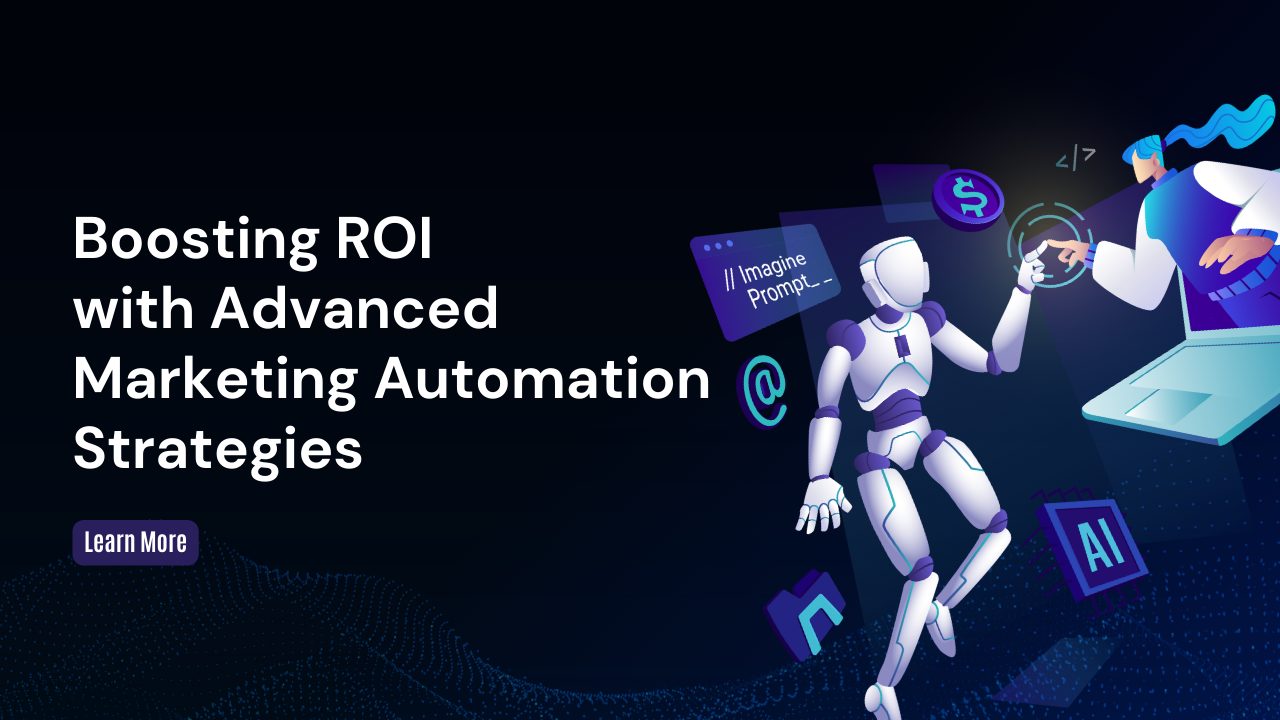In the digital era, where data drives decisions, advanced marketing automation strategies are pivotal in maximizing ROI. Businesses are leveraging automation tools to streamline operations, engage audiences, and optimize campaigns. These strategies empower marketers to work smarter, not harder, by automating repetitive tasks and delivering data-driven insights. With a focus on personalization and multi-channel integration, marketing automation is redefining how brands connect with their customers. This article explores the core of marketing automation, dives into advanced strategies, and provides actionable advice to implement these approaches effectively. Explore more about our company on [our homepage].
Understanding Marketing Automation

Marketing automation refers to the use of software and technology to streamline, automate, and measure marketing tasks and workflows. It eliminates manual efforts in processes like email campaigns, social media posting, and lead nurturing while providing valuable insights into customer behavior.
The importance of marketing automation lies in its ability to improve efficiency and consistency. By automating repetitive tasks, marketers can focus on strategic initiatives, such as creating impactful campaigns or analyzing performance metrics. Furthermore, automation enhances customer engagement by ensuring timely and personalized interactions, which are essential for building brand loyalty and driving conversions.
Advanced Marketing Automation Strategies

1. Lead Scoring and Segmentation
Lead scoring involves assigning a value to prospects based on their actions, behavior, and fit with the target audience. This strategy helps prioritize high-quality leads, enabling sales teams to focus on prospects with the highest potential to convert.
Segmentation, on the other hand, categorizes leads into specific groups based on criteria like demographics, behavior, or purchase history. This ensures that marketing messages are relevant and tailored, increasing the likelihood of engagement. Together, lead scoring and segmentation enhance the efficiency of marketing campaigns and improve ROI by targeting the right audience with the right message.
2. Personalized Content and Campaigns
Personalization is a cornerstone of advanced marketing automation strategies. Modern consumers expect tailored experiences that resonate with their needs and preferences. Automation tools analyze customer data to deliver personalized content, such as product recommendations, customized email campaigns, and targeted advertisements.
For instance, e-commerce platforms use automation to recommend products based on browsing history or past purchases. Similarly, personalized email campaigns with dynamic content blocks ensure that each recipient receives a message that aligns with their interests. This level of personalization not only boosts engagement but also fosters brand loyalty. Dive deeper into our [blog posts] for in-depth insights and examples.
3. Multi-Channel Marketing Automation
Consumers interact with brands across multiple touchpoints, including email, social media, websites, and mobile apps. Multi-channel marketing automation ensures seamless integration across these platforms, providing a consistent brand experience.
By automating campaigns across various channels, marketers can maintain cohesive messaging and engage customers wherever they are. For example, an automated workflow might include an email campaign followed by a retargeting ad on social media and a personalized SMS offer. This approach increases the likelihood of conversion by reinforcing the message through multiple touchpoints.
4. AI and Machine Learning
Artificial Intelligence (AI) and Machine Learning (ML) are revolutionizing marketing automation. These technologies enable predictive analytics, customer behavior analysis, and advanced personalization. AI-powered chatbots, for example, can engage customers in real-time, answer queries, and guide them through the buyer’s journey.
Machine learning algorithms also optimize campaign performance by analyzing data and adjusting strategies accordingly. For instance, ML can identify the best times to send emails or predict which customers are likely to churn, allowing marketers to take proactive measures.
5. Advanced Analytics and Reporting
Data is the backbone of marketing automation. Advanced analytics and reporting tools provide insights into campaign performance, customer behavior, and ROI. These tools enable marketers to track key metrics, such as click-through rates, conversion rates, and customer lifetime value, in real-time.
By leveraging these insights, businesses can make informed decisions and continuously optimize their marketing efforts. For example, a detailed report on email campaign performance can highlight areas for improvement, such as subject lines or call-to-action buttons, ensuring future campaigns are more effective.
Effective Advices for Marketing Automation

To fully leverage advanced marketing automation strategies, businesses must adopt a strategic approach:
- Define Clear Goals: Start by identifying specific objectives, such as increasing lead conversion rates or improving customer retention.
- Choose the Right Tools: Select automation platforms that align with your business needs and integrate seamlessly with existing systems.
- Invest in Data Quality: Ensure that customer data is accurate, up-to-date, and comprehensive to maximize the effectiveness of automation strategies.
- Test and Optimize: Regularly test automated workflows and campaigns to identify areas for improvement. A/B testing is particularly effective for refining email campaigns and advertisements.
- Focus on Customer Experience: Prioritize personalization and timely communication to enhance the customer experience and build lasting relationships.
Conclusion
Advanced marketing automation strategies are no longer optional in today’s competitive landscape—they are essential for achieving sustainable growth and maximizing ROI. By automating processes like lead scoring, personalization, and multi-channel marketing, businesses can enhance efficiency, deliver impactful campaigns, and engage customers effectively. The integration of AI and machine learning further amplifies the potential of automation, enabling predictive analytics and advanced personalization.
However, success requires a strategic approach, including clear goal-setting, data quality, and continuous optimization. As technology evolves, the possibilities for marketing automation are limitless. Businesses that embrace these strategies and invest in the right tools will not only stay ahead of the curve but also build stronger, more meaningful connections with their audience. By focusing on innovation and customer-centricity, organizations can unlock the full potential of marketing automation and drive long-term success.

